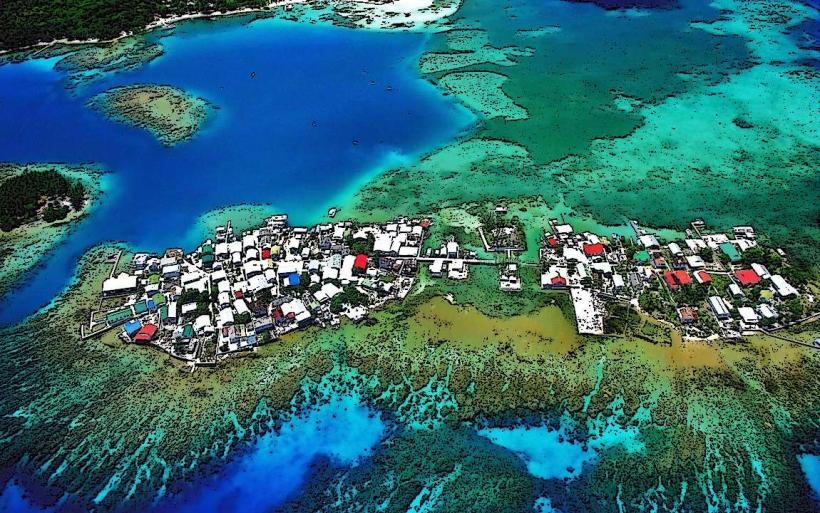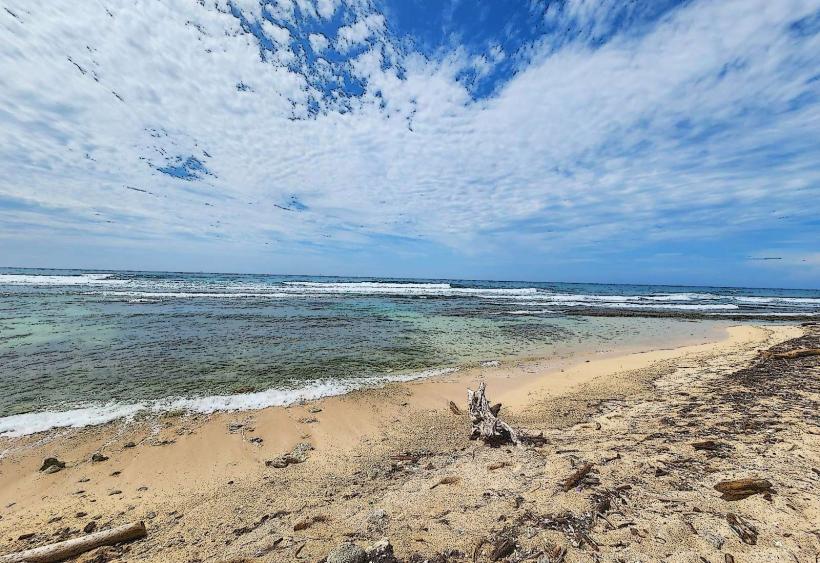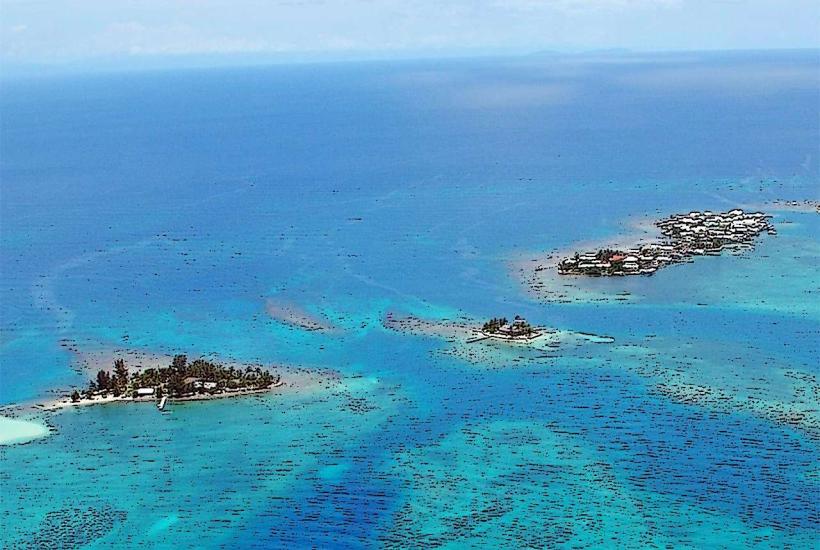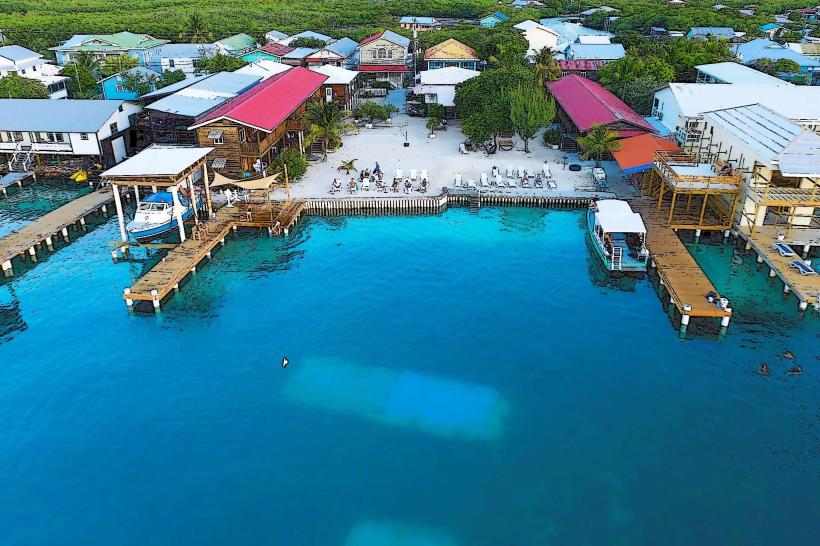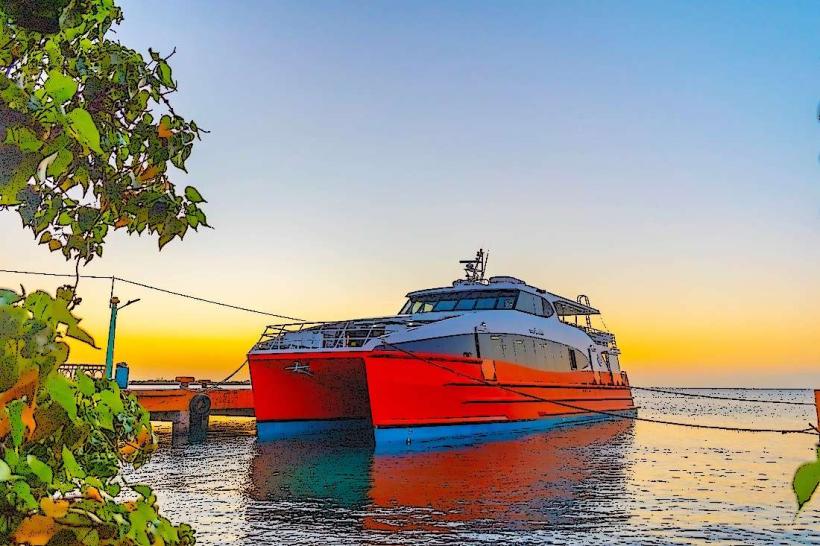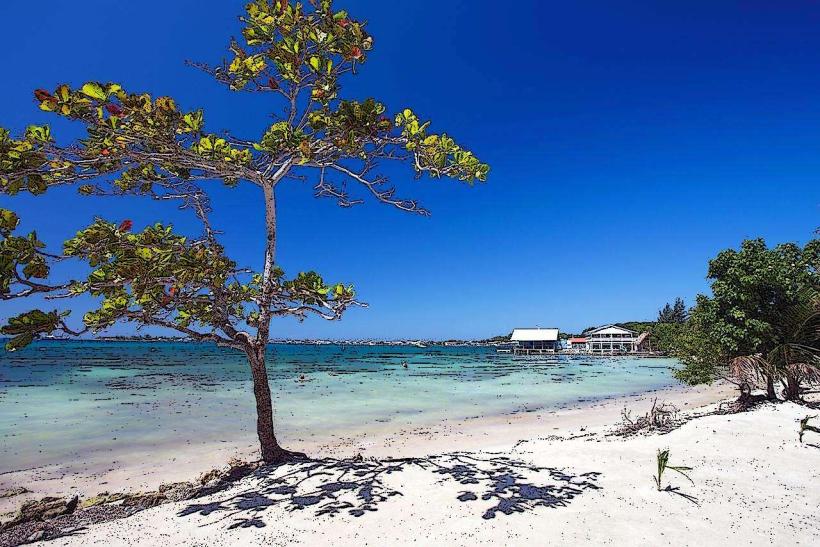Information
City: UtilaCountry: Honduras
Continent: North America
Utila, the smallest of Honduras' three major Bay Islands, is a well-known Caribbean destination famous for its diving, backpacker-friendly atmosphere, and relaxed island lifestyle. Located about 32 km north of La Ceiba on the mainland, Utila is part of the Mesoamerican Barrier Reef System, making it one of the most affordable and popular places in the world for scuba diving certifications.
Geography and Climate
Utila covers approximately 45 km² and is mostly flat, with a mix of dense mangroves, lagoons, and beaches. The island is surrounded by coral reefs and small cays (tiny islets), some of which are privately owned or used for eco-tourism.
The climate is tropical, with temperatures ranging from 25°C to 32°C year-round. The rainy season, from October to January, brings occasional storms, while the dry season, from February to September, sees sunny weather ideal for tourism and diving. Utila is less affected by hurricanes than other Caribbean destinations but can still experience heavy tropical storms.
Urban Structure and Development
Utila has one main town, Utila Town, which stretches along the island’s southern coast. The town consists of a single main street lined with dive shops, restaurants, bars, and small hotels. Unlike Roatán, which has larger resorts and cruise ship tourism, Utila has maintained a more low-key, backpacker-friendly vibe.
Beyond the main town, much of the island remains undeveloped, with scattered small communities and eco-lodges. The Utila Cays, a group of small islands off Utila’s southwest coast, are home to local fishing villages and a few private properties.
Economy
Utila's economy is centered around tourism, fishing, and small-scale commerce.
- Tourism and Diving: The island is one of the world’s cheapest places to get PADI scuba diving certification, attracting thousands of budget-conscious travelers and diving enthusiasts each year. Many visitors come to swim with whale sharks, which migrate through Utila’s waters.
- Fishing: Traditional fishing is still an important industry, particularly in the Utila Cays, where families rely on seafood for income and trade.
- Hospitality and Real Estate: The island has a growing number of small hotels, guesthouses, and vacation rentals catering to tourists and expatriates. Some foreigners invest in property for businesses or retirement homes.
Despite its tourism success, Utila remains less developed than Roatán, with fewer large businesses and a more laid-back economy. Employment opportunities outside of tourism are limited.
Transportation
Utila is accessible by air, boat, and local transport.
- Ferries: The Utila Dream Ferry provides daily service between Utila and La Ceiba, making it the primary transportation link to the mainland.
- Air Travel: Utila has a small airstrip with flights connecting to Roatán, La Ceiba, and Tegucigalpa. Private charter flights are also available.
- Local Transport: There are no large roads or highways, so people get around on foot, by bicycle, motorbike, or golf cart. Taxis are available but are mainly motorcycles or tuk-tuks.
Demographics and Population Growth
Utila has a small but diverse population, including indigenous Garífuna, Spanish-speaking mainland Hondurans, Afro-Caribbean islanders, and a significant expatriate community. Many locals speak both English and Spanish, with some also speaking Creole.
The population has grown slightly in recent years due to tourism, but Utila still maintains a small-town feel. Unlike Roatán, which has seen large-scale development, Utila has remained relatively unchanged, with a strong focus on preserving its laid-back island culture.
Social and Security Situation
Utila is one of the safest places in Honduras, with very low crime rates compared to the mainland. However, occasional petty theft and alcohol-related incidents can occur, especially in tourist areas. The local community is tight-knit, and most visitors feel safe walking around at any time of day or night.
Healthcare services are limited, with only small clinics available. For serious medical issues, residents and visitors often travel to La Ceiba or Roatán.
Environmental Concerns
As tourism increases, environmental challenges such as waste management, water pollution, and coral reef protection have become concerns. Key issues include:
- Coral Reef Damage: Increased diving activity, pollution, and climate change pose risks to Utila’s fragile marine ecosystem. Conservation programs work to promote responsible diving and marine protection.
- Waste and Water Management: The island lacks a proper landfill, and waste disposal is a growing problem. Water supply is also limited, with rainwater collection and desalination being common solutions.
- Deforestation and Land Development: While Utila is less developed than Roatán, some areas have seen rapid construction, raising concerns about sustainability.
Conclusion
Utila is a unique Caribbean island that offers a balance between tourism, local culture, and natural beauty. Unlike Roatán, which has a more upscale tourism industry, Utila maintains its reputation as a budget-friendly, backpacker haven with a strong focus on scuba diving and marine conservation. While challenges such as waste management and infrastructure development remain, the island’s relaxed atmosphere, affordability, and thriving diving industry ensure its continued popularity.

